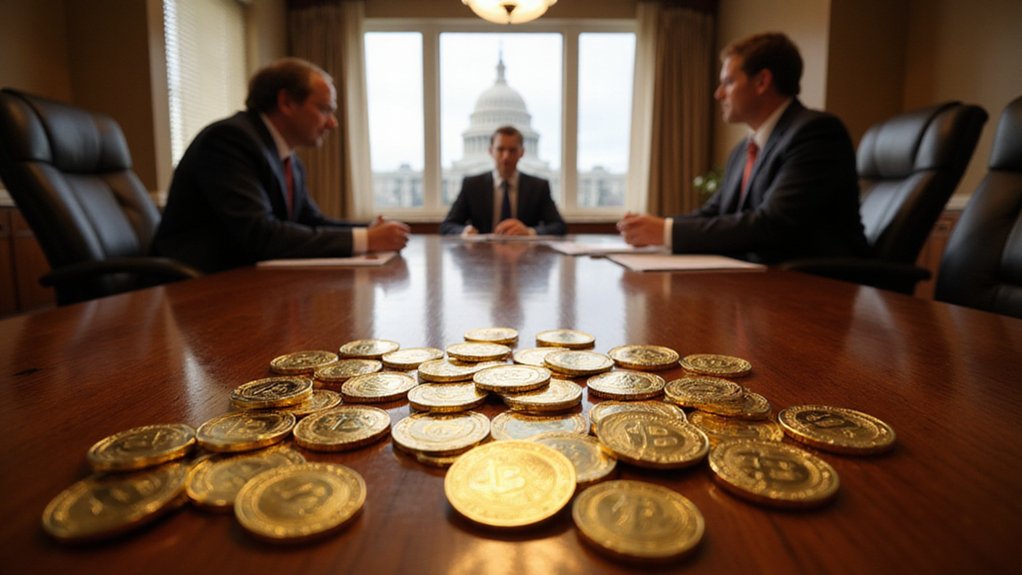The decentralized finance sector has mounted an increasingly vocal campaign against what it considers regulatory overreach, as Senate lawmakers grapple with legislation that could fundamentally reshape how automated financial protocols operate within the traditional compliance framework.
The Congressional pushback gained momentum with a decisive 70-27 Senate vote to repeal the IRS DeFi broker rule—a regulation that would have transformed decentralized exchanges into reluctant tax collectors. Industry groups didn’t mince words, labeling the requirement “technologically unfeasible,” which seems like diplomatic understatement when describing the challenge of forcing autonomous smart contracts to suddenly develop data-gathering capabilities.
The numbers tell a compelling story: the Biden administration’s rule would have generated at least 8 billion new IRS paperwork filings annually. For context, that represents roughly one-third of all existing federal tax documents, creating what House lawmakers characterized as “massive administrative burdens” on a sector built specifically to eliminate intermediaries.
The proposed rule would have tripled federal tax paperwork overnight, burying a streamlined sector in bureaucratic complexity.
Republican House committee chairs responded with their own legislative draft, proposing what amounts to a regulatory détente between traditional oversight and DeFi innovation. The bill establishes clear SEC and CFTC authority while carving out specific boundaries for decentralized protocols—a recognition that applying securities laws designed for centralized entities to autonomous code creates practical impossibilities. DeFi protocols face distinct security challenges compared to traditional financial institutions, as they lack established cybersecurity infrastructure and must navigate blockchain-specific attack vectors.
The proposed legislation includes a statutory safe harbor for self-custody wallets, effectively blocking Treasury or FinCEN from mandating information collection on withdrawals. This provision addresses industry concerns about surveillance overreach while acknowledging that approximately one in four Americans now own cryptocurrency.
Senate stablecoin legislation has gained bipartisan traction, though partisan tensions remain evident in committee debates. The regulatory uncertainty has prompted DeFi stakeholders to argue that current compliance regimes simply cannot accommodate the finality and automation inherent in decentralized systems. Representative Mike Carey spearheaded the House initiative to repeal the burdensome reporting requirements that threatened to stifle American digital asset innovation.
The Congressional Review Act deployment against the DeFi broker rule demonstrates how quickly legislative sentiment can shift when regulations appear to ignore technological realities. Senate lawmakers utilized the Congressional Review Act to nullify outgoing administration rules, providing a swift mechanism for repealing regulations deemed detrimental to financial innovation. Whether this represents genuine regulatory reform or merely political theater remains to be seen, but the 70-27 vote suggests that even traditionally regulation-friendly senators recognize when compliance requirements venture into the domain of practical impossibility.









